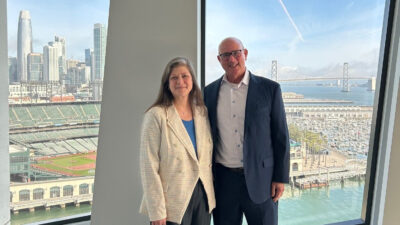Election Results Point to Need for More Regional Cooperation
Tuesday’s election produced some great news on the housing and transportation fronts, but it was more difficult to divine a clear overarching message from voters. If anything, the mix of state and local results suggested that addressing our biggest challenges requires a continued and stronger focus on regional solutions. The resounding defeat of Propositions 6 and 10 signaled that voters are all in to solve our traffic and housing crises. The Bay Area Council vigorously opposed both initiatives. Prop. 6 would have eliminated $54.2 billion in funding to fix bridges, roads and highways statewide. Prop. 10 would have worsened our housing crisis by allowing cities to adopt rent control, which chills investment in new housing and drives up overall housing costs. Two other state initiatives the Council endorsed—Propositions 1 and 2—got the thumbs up and will provide important new funding for a range of affordable housing and homelessness programs.
See how the Council did on the Nov. 7 election>>
Housing was likely top of mind for voters who overwhelmingly installed Gavin Newsom to succeed Gov. Jerry Brown. Newsom made housing a key issue in the campaign, pledging to create 3.5 million new housing units and touting the power of attacking problems like housing and homelessness at a regional level. Newsom echoed the regionalist theme during a candidate forum the Council hosted in October when he talked about the need for a regional approach in addressing homelessness. The Council has enjoyed a very good relationship with Governor-elect Newsom and is looking forward to working with him and his administration over the next four years on housing, early education and transportation, among other issues.
Election results in cities and counties across the Bay Area offered a mixed bag on key issues of housing, transportation and homelessness. They suggested to us that there remains a huge unmet opportunity for building greater regional cooperation in addressing these challenges. And they raise an important question about the extent to which complex issues that span the region can be solved at the local level. Local measures to impose new taxes and fees on businesses in Mountain View, San Francisco and East Palo Alto all passed, with the intent that they will help address local housing, homeless and traffic problems. But how much control, really, does any individual city or county have in isolation? And aside from any negative economic effects the measures might have on job growth and business expansion, how big of dent will they make in the overall problem?
In San Francisco, Proposition C also opened up a fierce and very public debate about the role of business in addressing our biggest challenges. Salesforce CEO Marc Benioff championed Prop C, which raises taxes on big business to support homeless programs, and challenged other CEOs to get behind it. Some of Benioff’s peers in the tech industry, including Square CEO Jack Dorsey, disagreed that more money would solve the problem. Dorsey and others argued for more accountability in how money is spent and more coordination among different agencies working on the homeless problem. It remains to be seen how much impact Prop. C will have on the homeless problem, but Benioff’s outspoken leadership certainly elevated awareness even if it left unanswered the question of how the business community can better build consensus around extremely challenging issues.
The Council is no stranger to these dynamics and has long advocated for stronger and more effective regional cooperation and collaboration. It’s why we helped lead the campaign for Regional Measure 3 in June, the Measure AA bay restoration funding campaign in 2016 and why we’ve argued for greater regional accountability on meeting our housing goals. Voters in Brisbane thankfully approved Measure JJ to allow more than 2,000 units of new housing on an idle former industrial site. Welcome news, but again, can we hope to solve these problems through a continuing stream of local measures? Or, will we just end up playing a never-ending game of election whack a mole?





